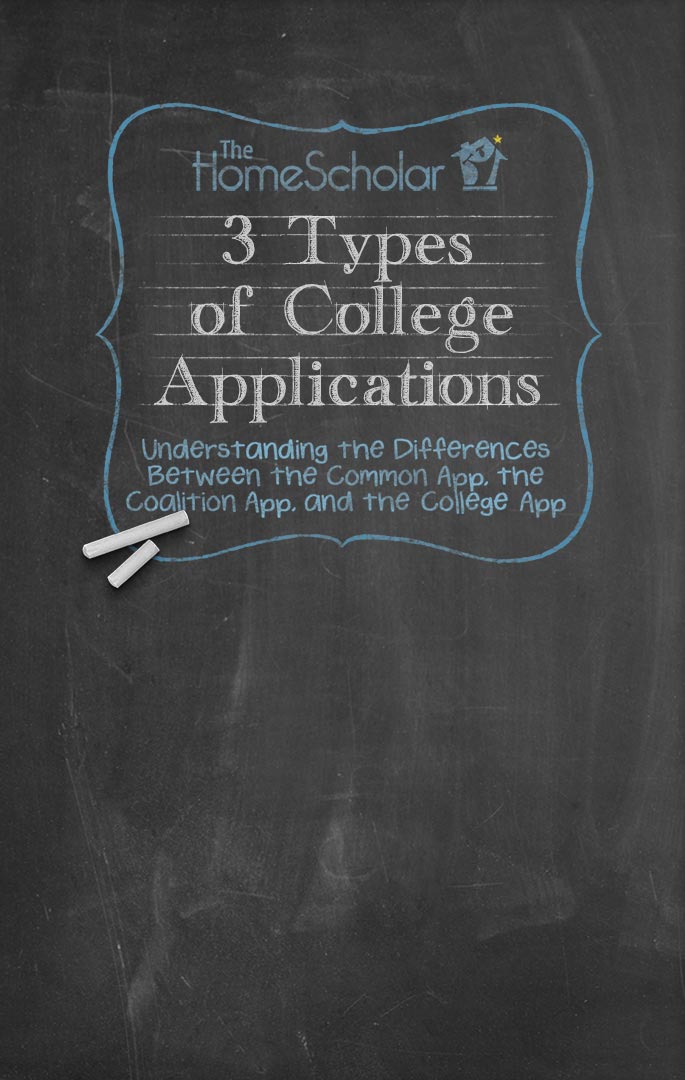Prepare Your High School Student
For Their College Launch!
Identify the Preferred Application Process
Some colleges will accept only one of the three types of applications. For example, there are three colleges – University of Florida, University of Maryland-College Park, and University of Washington-Seattle – that will only accept the Coalition App. Other colleges will accept two of the three. The rest will accept all three, although some, such as the University of Chicago, add on a university-specific supplement. You need to find out which application is preferred or allowed by each of the colleges where you are planning to apply.
Mom to mom, I know this feels overwhelming, but I promise it is not as hard as it seems right now. In the normal process of finding a college, you’ll go to a college fair or visit a campus. When you speak to a college representative, simply ask “What is your application process?” This is a particularly helpful question, because some colleges will even waive their college application fee on the spot, perhaps saving you $100. Not bad, right? You get your questions answered and save some money at the same time! So, I don’t want you to panic about these three kinds of college applications at all. I just want to provide an overview of each one, so you are prepared.
Now let me help you through the specific features of each of these application types.
The College Application
Each college is unique, and their application process may also be unique. Some universities have their own application forms that are often short and manageable to complete, and are personally tailored to each college. These college applications may be old-fashioned paper and pen forms, although almost all have an online option. Traditional features include information on the student’s background, including an academic profile, essays, and extracurricular activities, as well as a brief personal statement.
You will often be asked to submit other documents and information such as transcripts, records, and letters of recommendation. Some colleges have very simple applications. For example, Evergreen State College in Washington State requests only basic information plus an optional personal statement. Most colleges require more than this and some require much more.
The Common Application
The Common Application is used by over 1000 colleges and universities. This one application attempts to fit the needs of all students and colleges. For that reason, it’s a perfect fit for almost nobody. Not all colleges require the Common Application, because as I mentioned, some universities have their own application forms tailored to their own college. On the other hand, using the Common Application can allow your child to apply to many colleges at once.
How does the Common Application work? Colleges request a large amount of information from applicants, and the Common App simplifies the process by collecting most of this information all in one place. This prevents students from repeating the details of their background, education, activities, and testing over and over again, for every school on their list. It also enables students to stay on top of deadlines and manage school-specific tasks, without leaving the Common App system. It provides resources for parents and counselors to access.
Although the Common App isn’t easy to fill out, especially for homeschoolers, it is simple. You create an account with your basic profile information, add schools to your list, and start your application. It is best if you can gather general information before you begin, such as your transcript(s), lists of extracurricular activities, test scores and test dates from entrance exams, and parent/legal guardian information.
The Common Application limits the size of each file you upload. Your comprehensive homeschool record may be 2 MB, but it will only allow you to upload documents in 500 KB chunks. To upload very large files, you can simply divide your records into different chunks to upload. For example, upload one document that includes only course descriptions, and another document that includes the transcript, activity list, and reading list.
The Coalition Application
The Coalition App is an alternative to the Common Application. A group of deans at top colleges and universities started the Coalition App. After looking at research, they felt that students who started thinking about college earlier in high school had higher application rates. Those developing the new application believe they could “leverage technology to level the playing field in college preparation” by allowing college planners and possibly admissions staff, to interact with high school students as early as their freshman year. Many of these schools are private colleges and universities. Coalition members must have a six-year graduation rate of at least 60% and meet students’ full financial needs or, if public, offer affordable in-state tuition.
The Coalition (of colleges) is committed to improve the admission process and provide ongoing innovation and improvement to the site. They believe that working with students and counselors throughout high school will improve the acceptance rate for students. The goal of champions of the Coalition App is to get to know the student better and make applications more reflective of the student.
The Coalition App is a technology platform designed in conjunction with CollegeNET. It is free for students, families, counselors, and high schools. There is a concentration on students who are disadvantaged and have a low income background, to ensure college success, including affordability. Colleges in the Coalition are the ones who pay for this platform. The Coalition App has three distinct pieces.
The Locker: A tool that is to be used throughout high school as a storage place for organizing materials - as a place to provide thoughts on college options, storing class work or personal writings, maintain records of interests and activities, collect letters of support from instructors, coaches, and supervisors, and upload videos. Students have to invite others (counselors, mentors, etc.) to edit or provide feedback on items in the locker.
The Collaboration Space: A space the student can gather feedback and editing of the application process. School counselors, teachers, and mentors, or CBOs (community-based organizations) can all access this space when given permission by the student. Colleges will not have access to student contact information unless they are invited by the student to interact.
The Application Portal: The space where students apply to colleges. Students are still required to follow the admission processes of each school, including application fees or approved waivers. Low income students will have fees waived by Coalition schools.
Individual schools still have unique application requirements, so students are encouraged to check schools of interest for their individual requirements. However, if the school is in the Coalition, there are pieces of information that can be obtained through the Coalition App: information that is auto-filled from your profile, a Coalition essay prompt response, institutional questions specific to an individual college or university, and any additional expressions of your candidacy and interest to a college or university through sharing an item from your Locker. Colleges will not have access to student contact information unless they are invited by the student to interact.
In addition to sections for students in the Coalition App, there are sections for counselors, CBOs (community-based organizations), and mentors, as well as a newsletter that’s available.
The Similarities
In addition to both apps being free, there are other basic similarities between the Common Application and the Coalition App. Both applications request the same basic profile and demographic information. Both ask for a similar number of activities; the Common App allows you to provide up to ten and the Coalition App asks for your top two, with the option to provide eight more.
Essay prompts seem to be a key concern for students. Both apps contain prompts, with a couple of the prompts being almost identical, asking applicants to discuss a time when they were challenged by a belief or idea. If you are undecided about which app to go with, this could be your deciding factor. The Coalition App gives students the option to write about a topic of choice.
How to Choose Which Application is Best
After reading all of the information on all of the applications, you may not be any clearer on which option to choose than you were before. Choose the one that fits your family best. Do you have a senior and are going through the process now? It’s probably best to go with the more well known application that is designed to be used when you are ready to apply. Do you have a freshman? Maybe you could start exploring the newer app. There will be changes made to it as it develops and it may be something that changes completely by the time your child gets ready to apply. However, the choice of application does not seem to give you an advantage in the short term.

 Login
Login






